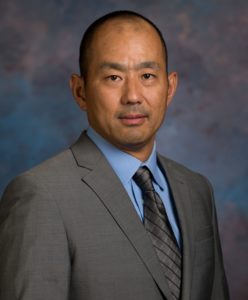
By Michelle Hirsch
Ice is cold, but hockey is hot, and the sport is growing despite the risk of concussion. USA Hockey reports player memberships in Arizona have nearly doubled in the last five years, increasing, from 4,860 players in 2014 to 8,983 in 2019.
With 31 high school teams in the Valley, and an increasing number of players in a season that runs from August to February, the local ice rinks have emerged the cool place to play. Kids as young as 4 years old can develop coordination skills and gauge interest in Learn to Skate classes.
But parents may have some hesitation for their child to enter a sport with a reputation for physical injuries.
Dr. Taro Kaibara, a neurosurgeon with Barrow Neurological Institute at Dignity Health Chandler Regional Medical Center, is an avid long-time hockey player himself and emphasized the improved culture and protocols of the sport in recent years.

“In a sport that is played at very high speed, body contact is an inherent part, but the culture and rules have changed over time, and now any contact to the head is a penalty. Across the board, concussion awareness has improved,” said Kaibara.
Coaches and trainers have increased training and evaluation protocols of concussion symptoms, and there’s an increased awareness and focus in the sport to emphasize skills and speed over physical contact.
Kaibara also suggests that parents are just as important as coaches in identifying possible concussion symptoms because they know their child best. Symptoms to watch for include headaches, ringing in the ears, sensitivity to light or noise, dizziness or imbalance, short-term memory loss, behavior or personality changes, nausea or vomiting, or inability to concentrate.
Kaibara advises parents to go to the emergency room for further evaluation and treatment if they notice any unusual symptoms, particularly in the first 24-72 hours after their child sustains any hit.
Autumn Muir, a long-time area hockey parent who also serves on the board of the Arizona High School Hockey Association, the organization that oversees high school hockey leagues, said “Everyone is very aware of concussion risks, but everything is in place to help prevent them.
“The coaches are so good about placing players at the right skill level, training players how to take a hit, and not to hit in the head. Players know they will be benched for dirty hits. It’s not acceptable.”
AHSHA also requires, and provides players with, baseline concussion tests every two years; coaches and managers are required to take ongoing certified training in prevention protocols and evaluation of concussions. Muir says her son Mason, a junior at Corona, has been safely playing hockey for 10 years.
Mike Myrick, current president of the Kyrene Governing Board, is also an active hockey parent. His son Ryan, a sophomore at Corona, and son Tanner, an 8th grader at Pueblo Middle School, have been participating in hockey for years and neither has ever sustained a concussion, he says.
Myrick concurs there are good protocols in place for safety and an increased awareness in preventing and evaluating concussions.
From a medical vantage point, Kaibara emphasizes the importance of diagnosing and treating a first concussion to prevent the severity of a second injury during the recovery phase.
Kaibara, players and parents praise the sport for the love of the game, lifelong team bonds, and building athletic skills along with character skills like respect, accountability and teamwork.
In actuality, few youth players sustain a concussion in hockey.
A 2016 study found 10 percent of youth ice hockey placers sustained a concussion, but with the improved protocols, the goal is safety and enjoyment playing on ice in the desert.
Learn to Skate programs are available locally at the Ice Den location in West Chandler.


